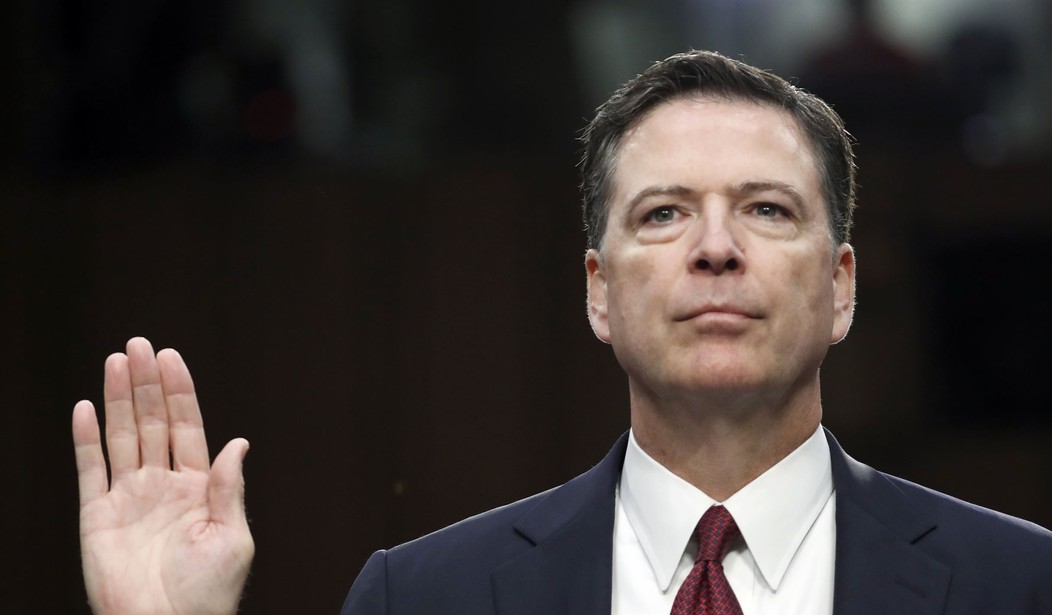After missing a deadline earlier this week, the FBI finally turned over memos written by fired Director James Comey to Congress Thursday evening. The memos are Comey's recollection of meetings and phone calls with President Trump.
According to the Wall Street Journal, Comey leaked classified information contained in two memos to a friend, who then gave them to the New York Times. That friend was Columbia Law Professor Daniel Richman, who did not have a security clearance.
At least two of the memos that former FBI Director James Comey gave to a friend outside of the government contained information that officials now consider classified, according to people familiar with the matter, prompting a review by the Justice Department’s internal watchdog.
Of those two memos, Mr. Comey himself redacted elements of one that he knew to be classified to protect secrets before he handed the documents over to his friend. He determined at the time that another memo contained no classified information, but after he left the Federal Bureau of Investigation, bureau officials upgraded it to “confidential,” the lowest level of classification.
The Justice Department inspector general is now conducting an investigation into classification issues related to the Comey memos, according to a person familiar with the matter. Mr. Comey has said he considered the memos personal rather than government documents. He has told Congress that he wrote them and authorized their release to the media “as a private citizen.”
Recommended
In an email written by Comey that was released with the memos, the former FBI Director acknowledged his notes could be classified.
"What follows are notes I typed in the vehicle immediately upon exiting Trump Town on 1/7/17. Although I wrote this less than five minutes after the meeting and have tried to use actual words spoken, including quoting directly in some places, I have not used quotation marks throughout because my purpose was to capture the substance of what was said," Comey wrote. "I am not sure of the proper classified here so have chosen SECRET. Please let me know of [if] it should be higher or lower than that."

During congressional testimony last summer, Comey explained why he leaked the memos and how he gave them to a Richman. He specifically did it to prompt a Special Counsel investigation.
"I woke up in the middle of the night on Monday night, because it didn't dawn on me originally, that there might be corroboration for our conversations, might be a tape, my judgement was that I needed to get that out into the public square and so I asked a friend of mine to share the content of the memo with a reporter," Comey said. "I didn't do it myself for a variety of reasons, but asked him to, because I thought that it might prompt the appointment of a Special Counsel. I asked a close friend of mine to do that."
During an interview with Fox News Friday, Republican Congressman Lee Zeldin made the point that Comey leaked at least two memos to Richman and yet it took the FBI months, on top of a subpoena threat, to turn them over to Congress.
In July 2016, Comey announced the FBI would not refer Democratic presidential candidate Hillary Clinton for criminal charges despite her "extreme carelessness" and mishandling of classified information.

























Join the conversation as a VIP Member